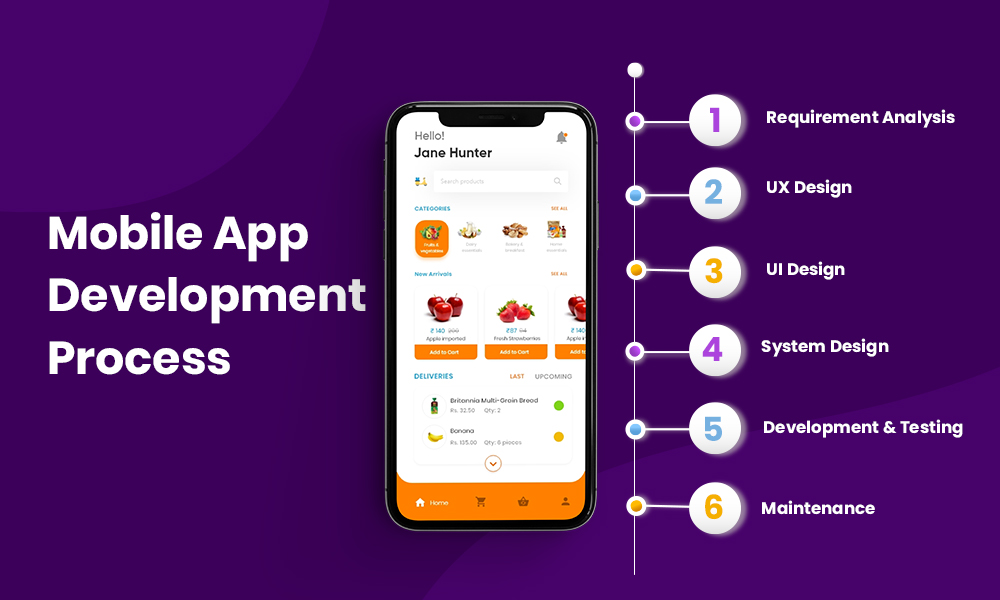Mobile App Development
OUR SERVICES
Introduction
The creation of mobile apps has completely changed the way we engage with technology and has a significant impact on our daily lives. With smartphones and tablets becoming commonplace, mobile apps—which provide us with access to a wide range of services and entertainment options—have evolved into indispensable tools. These applications improve well-being and productivity in a variety of areas, including social networking, communication, navigation, healthcare, and financial management. Mobile app development has come a long way, from simple games to complex, feature-rich programs that propel contemporary companies and revolutionize markets. This change has been driven by developments in hardware, high-speed internet, and developer inventiveness, which have expanded the realm of what is feasible.
These days, the mobile app development industry is a thriving one, full of inventiveness, ingenuity, and fierce rivalry. With thousands of new apps being created every day, developers need to take a comprehensive approach to stand out amidst the crowded marketplace. This entails not only technical proficiency but also a deep understanding of user preferences, market trends, and effective marketing strategies.

The Evolution of Mobile Development
The history of mobile app creation, though relatively recent, is marked by a remarkable surge in both quantity and utility of apps. The inception of this journey can be traced back to 1992 when IBM introduced the first mobile software for the Simon Personal Communicator, heralding the beginning of a new era. However, it was the establishment of the Apple App Store in 2008 that truly catalyzed a transformative shift in the mobile software landscape. Since then, the proliferation of applications has surged, cementing their position as indispensable tools in our daily lives.
Initially, smartphone apps were simplistic in nature, often serving a single function. However, with the advancement of smartphone capabilities, apps have evolved into sophisticated and feature-rich platforms. Today, the scope of what can be achieved through an app is virtually boundless, ranging from productivity tools to immersive entertainment experiences and gaming.
The surge in smartphone adoption, coupled with widespread access to high-speed internet, alongside continuous advancements in tools and technologies, has been instrumental in driving the expansion of the mobile app development industry. Consequently, mobile app creation has emerged as a significant sector, with developers catering to a global clientele, transcending geographical boundaries.
STRATEGIES FOR MOBILE APPS
"Empower your business with a mobile app: your gateway to reaching customers anytime, anywhere."
1. In-app purchases
2. Advertising
3. Subscriptions
4. Sponsorship
5. Data collection and analysis
6. Final Stage
Technologies for mobile app development
Mobile app development technologies encompass a broad spectrum of tools, frameworks, programming languages, and platforms used to create applications for mobile devices such as smartphones and tablets. Read More.
Conclusion
The growing need for creative solutions brought about by the surge in smartphone usage bodes well for the future of mobile app development. Mobile apps have the power to improve lives by addressing real-world issues. There are plenty of tools available to assist in getting started for people who are interested in entering the field.
There are countless opportunities for developing mobile apps as technology develops. In order to produce innovative and captivating apps that meet user expectations, developers will keep looking into new possibilities and leveraging newly available platforms and devices. It’s a great moment to start developing mobile apps because the future is full with possibilities.
